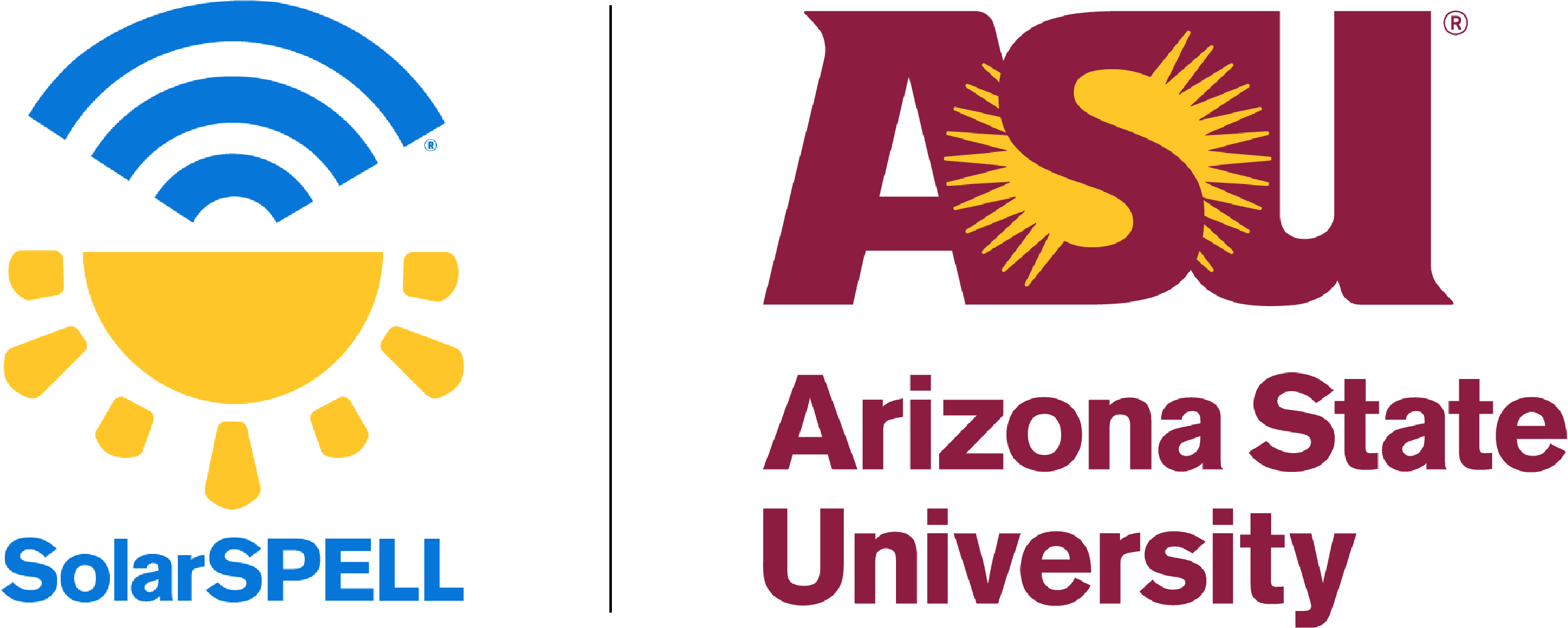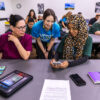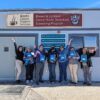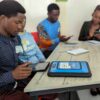By Shefali Sinha, SolarSPELL Communications Intern SU23
With 66% of its territory under cultivation and 70% of its population engaged in smallholder farming, Rwanda’s economy is heavily reliant on its agricultural industry. Yet it is highly sensitive to climate change.
The SolarSPELL digital Agriculture Library is designed to help farmers like those in Rwanda learn about climate-smart farming practices — including water conservation, soil management, pest control, and other important topics — which can help increase their crop yields and improve their climate resilience.
This summer, four Bridge2Rwanda Farms interns — Ines Umurerwa, Jean Marie Vianney Misago, Marie Josee Iradukunda and Valentine Uwimana — curated and translated content to help us provide more locally relevant resources. “Focusing on agriculture resources translated in the Kinyarwanda language makes it easy for the future Rwandan farmers to use it,” explained Jean Marie, a University of Rwanda alumna who majored in crop production.
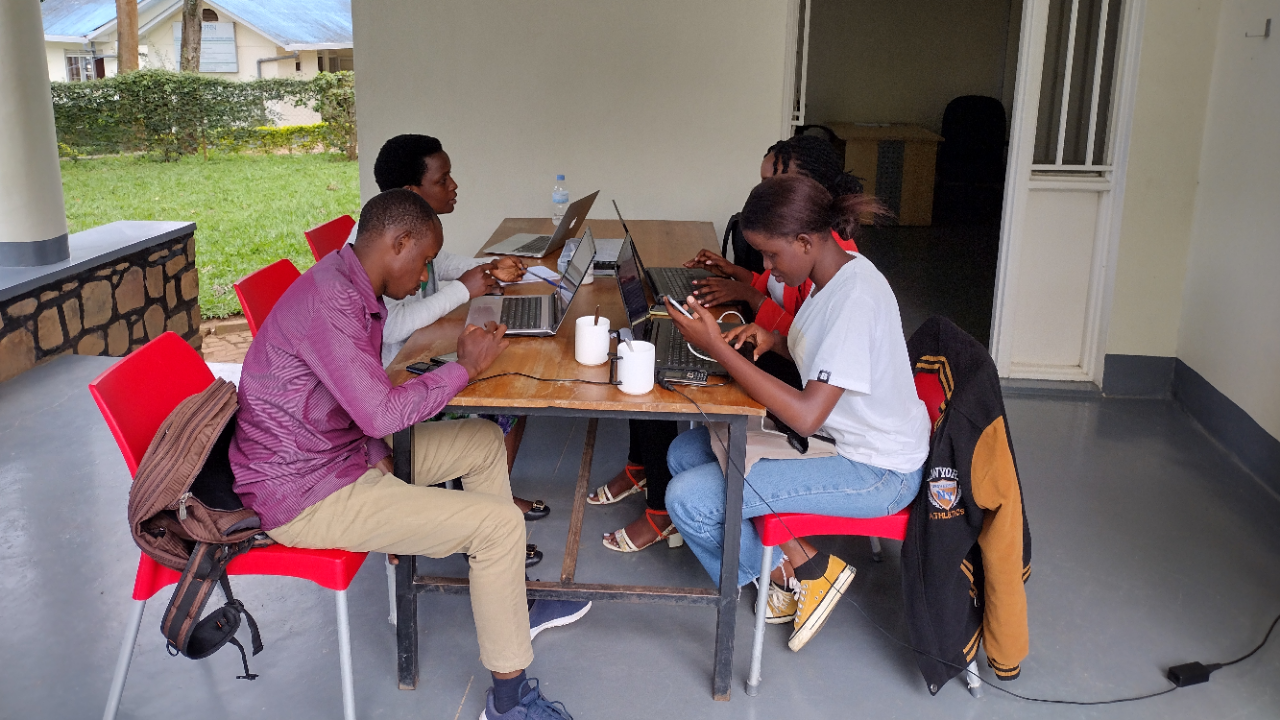
Photo by Bruce Baikie / SolarSPELL
After translating key metadata tags from English to Kinyarwanda to support local language searches and assist their curation efforts, the team got to work collecting agriculture resources from sources like Rwanda’s Ministry of Agriculture and Animal Resources and the Rwanda Agriculture and Animal Resources Development Board.
Sourcing content from reputable local institutions helps ensure that the resources are both reliable and relevant, suited to the particularities of Rwanda’s climate, soil, culture and economy. Jean Marie noted that Rwandan farmers are at particular risk from climate change due to a lack of knowledge of conservation agriculture methods of irrigation, fertilization and pest control.
“The average number of farmers in Rwanda are older, and they are still using antique techniques,” added Marie Josee, an agroforestry major who graduated from University of Rwanda in 2022. “With this digital library, they are able to learn and cope with the modernization of agriculture. The more the technology evolves, so does the productivity.”
The B2R Farms interns also spent time translating existing library content and interactive lessons into Kinyarwanda, since most Rwandan farmers are not fully fluent in English.
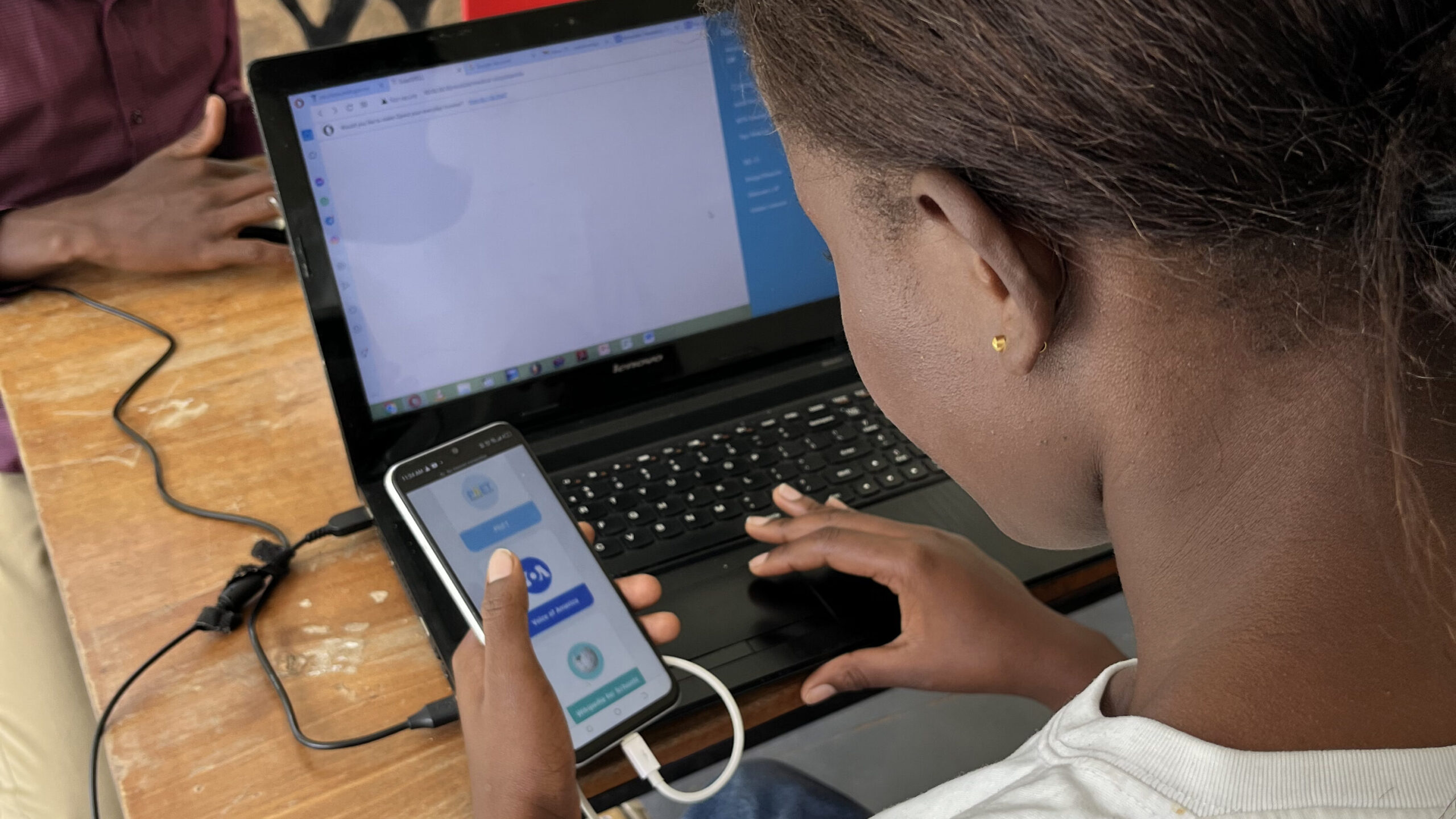
Photo by Sara Jordan / SolarSPELL
“Creating the offline digital library is crucial, as it could assist the government to train local farmers more easily,” noted Jean Marie. This is exactly our hope as we plan to train 60 B2R Farms apprentices this fall to share SolarSPELL digital libraries with agricultural extension agents across the country.
“Being part of something as big as SolarSPELL was gratifying,” said Marie Josee. “On this journey I have learned more about agriculture in Rwanda — both practical and theoretical skills.”
Jean Maria shared similar reflections: “I have gained the digital skills of researching multiple resources available online to provide valuable information to solve existing community challenges, especially in the agriculture sector… [I also] learned collaboration skills for online jobs when co-working with people from all over the world. Moreover I have gained new friends in this internship.”
